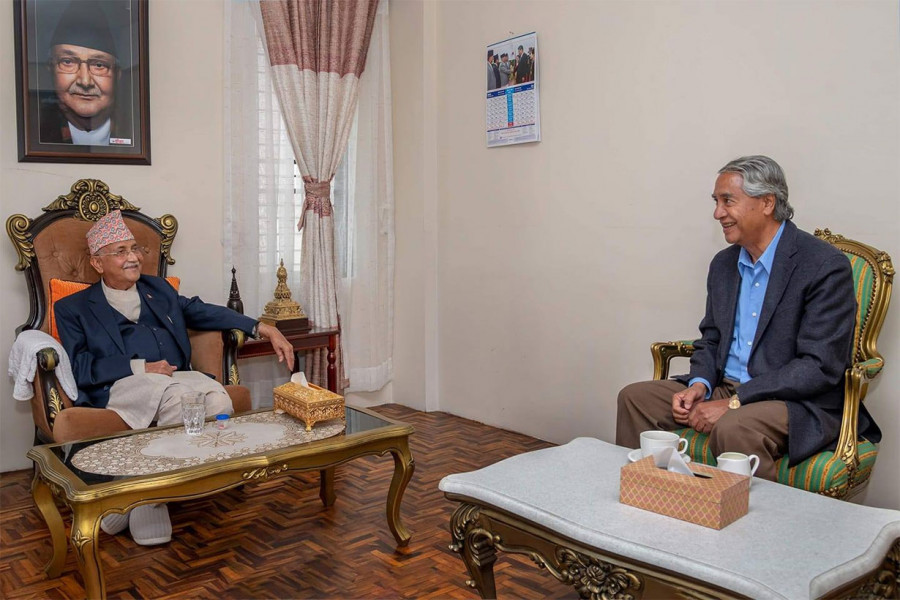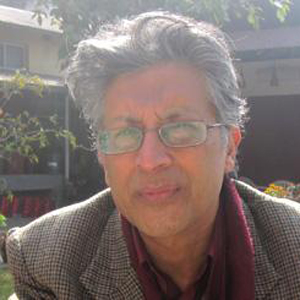Columns
A constitutional crisis in the offing
Without some sort of settlement, Nepal cannot be rescued from the present imbroglio.
Narayan Manandhar
As the Supreme Court hearings drag on and the Election Commission remains undecided over the legitimacy claims made by the two factions of the Nepal Communist Party, the possibility of holding the elections slated for April 30 and May 10 is getting remote. As per the constitution, elections must be held within six months from the date of the dissolution of Parliament. So if the planned elections cannot take place by June 20, Nepal will plunge into a constitutional crisis.
It is only the Oli government which is determined to have elections; he is busy holding campaign-like rallies and meetings and even personally making inquiries with the Election Commission. The cabinet has even decided to hold the elections in 40 districts on April 30 and in the remaining 37 districts on May 10; with budget allocations to the Elections Commission.
During a mass meeting held in Kathmandu on February 5, Oli directed his rented crowd to chant the slogan 'We want elections! We want elections!' Essentially, he is sending two messages. First, a direct message to his opponents that he is determined to hold elections. Second, an indirect message to the court signalling his displeasure in case his decision to dissolve the Parliament is reversed.
President of the Nepali Congress Sher Bahadur Deuba has come up with an absurd idea that Prime Minister Oli will resign after April (possibly reasoning his inability to hold elections on time) and hand over power to him on a silver platter. This can happen only when the court reinstates the dissolved Parliament. In the absence of Parliament, literally, Oli has turned out to be an indestructible iron man.
Extension no solution
In order to comply with constitutional requirements to hold the elections within six months, the poll dates can be extended. But the political crisis is already at a boiling point. Postponing the election without political consensus may further cool down the relationship between the political parties. Political polarisation is now at an extreme point. As a show of force, both factions of the Nepal Communist Party are briskly organising mass meetings—gathering rented crowds larger than those of the opponent.
By now, it is clear that the hidden agenda of the Oli administration is to prolong his stay in power on the pretext of elections. He is busy performing normal activities like attending inaugural sessions, giving interviews and speeches, and appointing and transferring government officials. Elections will never happen until he is sure of winning. There may be forced elections, but they will be similar to the polls held by former king Gyanendra, devoid of international recognition. Remember the reason outlined by the Oli government for having elections? The reason to secure a two-thirds majority in the elections is not only ludicrous but also suicidal. Only a fool will believe this to be true, given the fact that we have a mixed system with 60 percent coming from first-past-the-post and 40 percent from proportional representation; and demography, approximately, comprised of one-third each of Brahmin/Chhetris, Janajatis and Tarai-Madhesis.
Also, one needs no reminding that during his first term, Oli only tendered his resignation after a no-trust motion in Parliament. He is not going to quit easily. It is unbelievable how myopic politicians can become and be victimised by their own indecisiveness and inaction. In order to prolong his tenure, there is a possibility he might impose emergency rule. Who knows, the recent display by the Nepal Army of armed vehicles on the streets could be an exercise in this direction. Moreover, there are lessons to be drawn from what is happening around our region, that is, Myanmar. Landlocked Nepal is virtually dependent on India for necessary supplies; emergency rule cannot happen without the green signal from India. It is far easier to destabilise a country than to stabilise one. Definitely, a destabilised Nepal will not be in the interest of India.
Is Prime Minister Oli a nemesis of federal, secular, democratic, republic Nepal? A blogger commented on social media, ‘How a PM, who refused to take oath in the name of god, can suddenly turn into a devotee of Shree Pashupatinath or Lord Ram?’ His aversion to federalism was clear from his penchant to dictate to provincial governments. His 'bullock cart theory'—one can never reach the United States by riding a bullock cart—is often cited as his anti-republican remark. Many believe his choice of venue for organising the February 5 mass meeting has a more symbolic meaning than a search for a bigger space for his rented crowd.
Restoration or no restoration, elections or no elections, the country is in a deep political crisis, primarily emanating from the constitutional crisis. Clearly, there are flaws in the present constitution. It is an irony that a constitution designed to attain political stability is now helping to destabilise the country. The dilemma of the court is understandable from the dilly-dallying and time-buying approach of the government.
New political settlement
When a sitting minister himself calls for People’s Movement III, one can fairly imagine the situation of the country. Without some sort of new political settlement, the country cannot be rescued from the present political imbroglio. The settlement can take place between four primary actors in Parliament, namely two factions of the Nepal Communist Party, Nepali Congress and Janata Samajwadi Party. Possibly, such a settlement has to look into a constitutional amendment guaranteeing more, not less, republicanism, federalism, democracy and secularism.
Obviously, this will include immunity to Prime Minister Oli and his team, including the president. As politics is all about the game of possibilities, there is optimism in the air. Nepal is a unique country, unlike others where regime changes often lead to bloodbaths or exile for the opponents. At least in the modern history of Nepal, we do not have such a practice. Nepali politicians can and do sit together for talks with their arch-rivals. What is required is a bit of external coaxing.




 20.12°C Kathmandu
20.12°C Kathmandu















